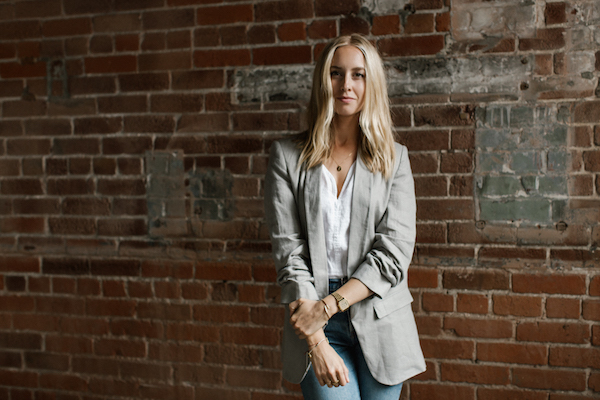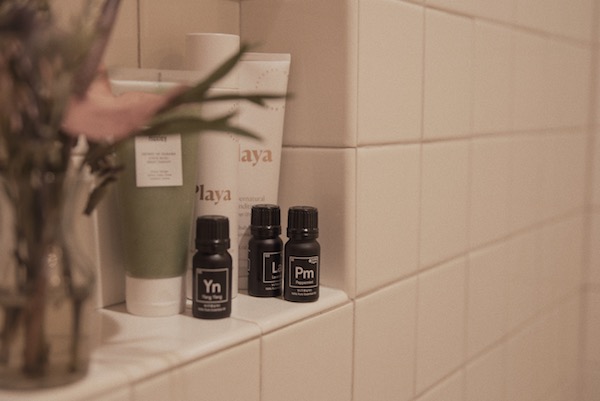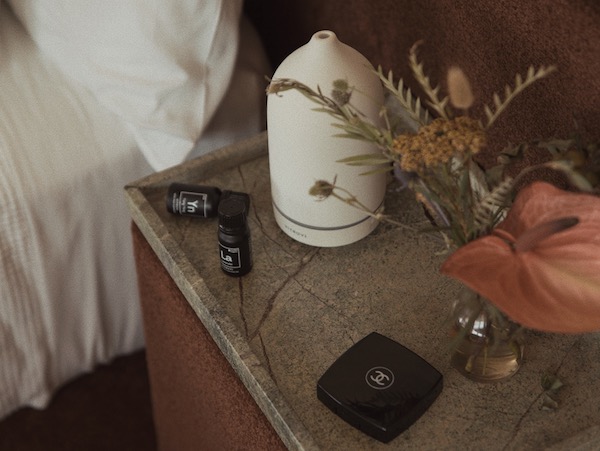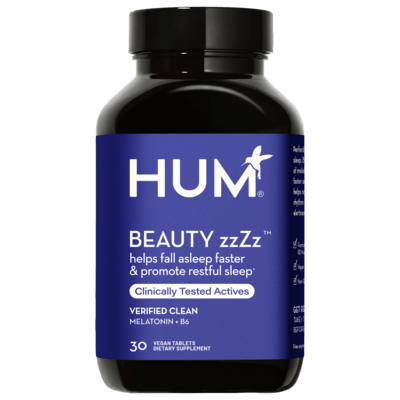
How did you get into essential oils?
I’d just finished a degree in health sciences studying global health. I was in my first year of medical school when I learned about the olfactory nerve and how scent affects the brain. I started learning about botanical practices of other countries in my global health degree. Travels to Kenya and Morocco then became a blog, which is now the basis for Vitruvi.
I’m fascinated by the wellness rituals of people around the world and spent a lot of time interviewing anyone I could about their wellness rituals. The blog was originally a passion project my brother and I did together. Then, I read that rosemary essential oil could possibly help with test anxiety, so I started making my own essential oil blends. The first blend my brother, Sean, and I ever made is our Focus blend. It was developed to help me study and is a blend of petitgrain, rosemary, frankincense, clove bud, lemongrass, basil, and peppermint. We still sell the Focus blend today.
What are the benefits of using them?
Besides diffusing them as a natural way to scent your home, essential oils can also be used to customize your beauty, body, and home rituals. Certain oils have properties that make them slightly astringent, antibacterial, or brightening—or all three. One of my favorites to incorporate into my beauty routine is geranium essential oil. It’s balancing and has a floral yet slightly minty aroma. I’ll use it mixed with hot water in a face steam or add a few drops to my moisturizer in the morning.

What should we look for in a quality essential oil?
One thing to look for is dark packaging: Oils packaged in dark bottles protect the oil from light. This feature is important as light can alter the stability of oils that are photosensitive, such as citrus oils. Then, a quality essential oil should be 100-percent pure with no added synthetics, diluters, or fillers.
Poor-quality and non-natural oils contain fragrance oils, which are synthetic versions of aromas. They can create skin reactions and allergies. They can also cause headaches and general sensitivities. Oils that aren’t 100-percent pure contain fillers and other diluting agents, which can clog diffusers and create skin reactions.
What are the best essential oils you recommend starting off with?
If you’re new to essential oils, these three are incredibly versatile and great to start with.
Lavender
Incredibly soothing. I’ll add eight drops of lavender to the diffuser in my bedroom an hour and a half before going to bed, then I shut the door. When it’s time to go to sleep, my room smells like a French lavender field, which helps me naturally wind down. I also love it as a gentle spot treatment because it has antibacterial properties. Sometimes I’ll add 10 drops in the bath to make it that much more relaxing.
Eucalyptus
Super invigorating. During my morning shower I’ll add two drops of eucalyptus to my palms and rub them together and breathe deeply. The steam from the shower intensifies the aroma, making it like a mini spa moment. Eucalyptus also blends really beautifully with lavender in a diffuser—just add six drops of each.
Grapefruit
Bright and fresh. I love this oil because the aroma isn’t too sweet. Grapefruit is a great oil to use in homemade cleaning products. I’ll mix 20 drops with water and a bit of white vinegar for a totally natural countertop spray with a fresh aroma.

What advice do you have on using essential oil diffusers?
We love using an ultrasonic diffuser, which distributes essential oils into the air evenly by oscillating small movements on a plate without any heat. The plastic inside the diffuser, the water you pour into it, and the oils are never heated. It ensures the plastic has no interaction with the essential oils. We also recommend choosing a diffuser that uses BPA-free plastic. A diffuser with a safety-off switch is a good choice so you can set it and forget it.
It’s important to clean both the inside and outside of your diffuser! We recommend running water mixed with a bit of white vinegar through your diffuser every three weeks or so to get rid of any oil residue. To clean the outside, simply add a pea size amount of dish soap and buff out any marks with your fingers. (Don’t use a cloth or paper towel, as the fibers can catch on the ceramic!)
What’s the biggest misconception about essential oils?
You might have heard the term “therapeutic grade” used to describe essential oils. This term isn’t an industry standard, but one certain essential oil companies trademark and use to describe their products. That’s why we don’t use it as part of our language at Vitruvi. Instead, we choose to speak to the quality of our oils in simple terms.
Our essential oils are completely free of fillers and contaminants and are certified organic whenever possible. At Vitruvi, we operate in transparency of the purity and potency of our oils. On each product page you can download the certificate of analysis to see the details of each oil batch. When purchasing essential oils, it’s important to do your research and look into each company’s policies on purity and sourcing to make sure you’re getting only the best.
Learn more at Vitruvi.com and be sure to follow them on social. Stay tuned for a very special giveaway of HUM and Vitruvi products!








